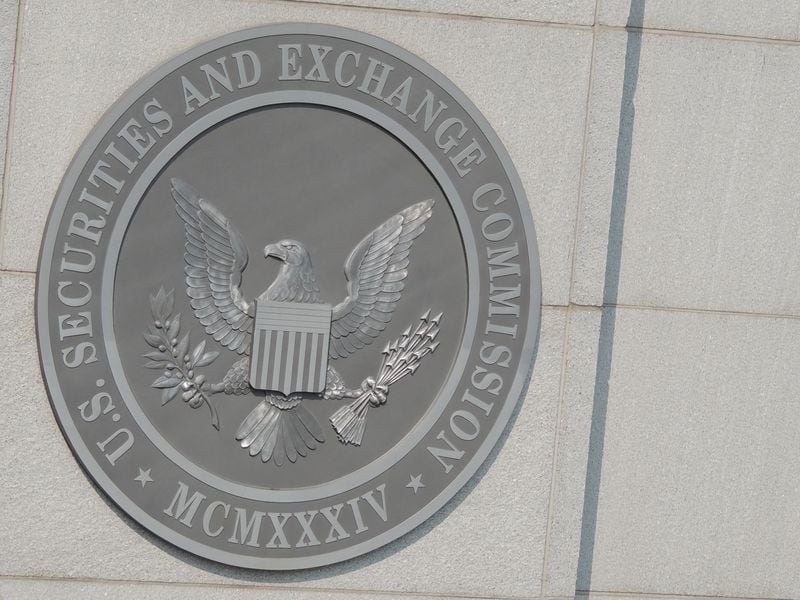I’ve been speaking a lot the last two years about how the blockchain industry tends to misunderstand regulation. This goes beyond whether or a particular token is a security or a commodity. The problem we have is in defining tokens.
Alexandra Damsker is an attorney and strategic consultant, advising on legal and operational issues. She was previously an attorney with the US Securities and Exchange Commission and Mayer Brown, and is an exited founder.
Note: The views expressed in this column are those of the author and do not necessarily reflect those of CoinDesk, Inc. or its owners and affiliates.
It really doesn’t matter which agency regulates tokens, because all of them are premised on the same thing: the regulated item is static. A stock is a stock from the day it’s created until the day it is voided or the company is dissolved. Fiat is currency from the day it is minted until the day it is destroyed.
But not tokens. Tokens are dynamic – they can have multiple different functions to different holders, or even to the same holder, simultaneously. And there is no regulatory system in the world that can account for that.
Let’s look at some of the things tokens can do, and the regulatory consequences of each:
You can see how many things a token can be – and the buyer doesn’t know what a specific token will end up. If I buy ether (ETH) in January, February and March, then in June stake some with a validator, purchase a one-of-one NFT (a product) in July, and a meme coin (likely a security) in August, paying gas for each transaction, which ETH specifically was used for which transaction? I, the buyer, don’t even know – I won’t know which ETH was used to buy the meme coin until I apply my jurisdiction’s accounting method. So we only find out in retrospect which regulatory system to look at for any particular ETH until after I spend it and apply professional accounting methods.
Now we throw in the fact that there is a person on the other side of the transaction – who may then shift the ETH into something else, just like I did. I took ETH I purchased on the marketplace (likely a security) to buy a product (the NFT) and service fees (gas fees). The person who sold me the NFT could have taken the ETH (payment/ currency) and then placed some of it on the market (currency), voted on an Ethereum Improvement Proposal (EIP) with some (voting), and purchased an NFT in a major fine art piece (security) and paid service fees (gas fees).
See also: Is the House’s FIT21 Bill Really the Legislation That Crypto Needs? | Opinion
Do we see how confusing this is, and artificial? The current regulatory structure assumes anything that falls within it will remain there permanently. But that is not only unlikely, it is impossible with respect to tokens. It does not work for dynamic systems.
Trying to squeeze tokens into old frameworks can only give us marginally useful protection at best, and limits incentive to innovate at worst. We can do better than this. And considering the fact that quantum computing and other technologies with greater likelihood of simultaneous shifting of character are coming into mass use faster and faster, we have no time to waste.
UPDATE 5/30/24; 19:25: The headline and summary for this op-ed have been amended to more accurately reflect the argument.
Edited by Benjamin Schiller and Daniel Kuhn.
Disclosure
Please note that our privacy policy, terms of use, cookies, and do not sell my personal information has been updated.CoinDesk is an award-winning media outlet that covers the cryptocurrency industry. Its journalists abide by a strict set of editorial policies. In November 2023, CoinDesk was acquired by the Bullish group, owner of Bullish, a regulated, digital assets exchange. The Bullish group is majority-owned by Block.one; both companies have interests in a variety of blockchain and digital asset businesses and significant holdings of digital assets, including bitcoin. CoinDesk operates as an independent subsidiary with an editorial committee to protect journalistic independence. CoinDesk employees, including journalists, may receive options in the Bullish group as part of their compensation.
Alexandra Damsker is an attorney and strategic legal consultant. She was previously an attorney with the US Securities and Exchange Commission and Mayer Brown, and is an exited founder. She has been in the blockchain space since 2016 and AI since 2019, and her book, Understanding DeFi (O’Reilly), was published in February 2024.
Learn more about Consensus 2024, CoinDesk’s longest-running and most influential event that brings together all sides of crypto, blockchain and Web3. Head to consensus.coindesk.com to register and buy your pass now.

